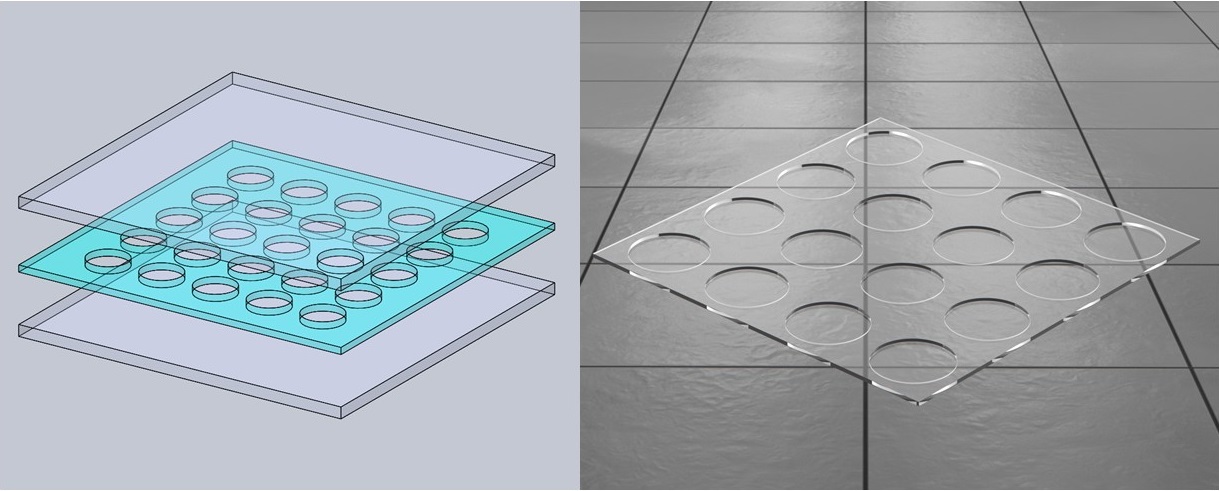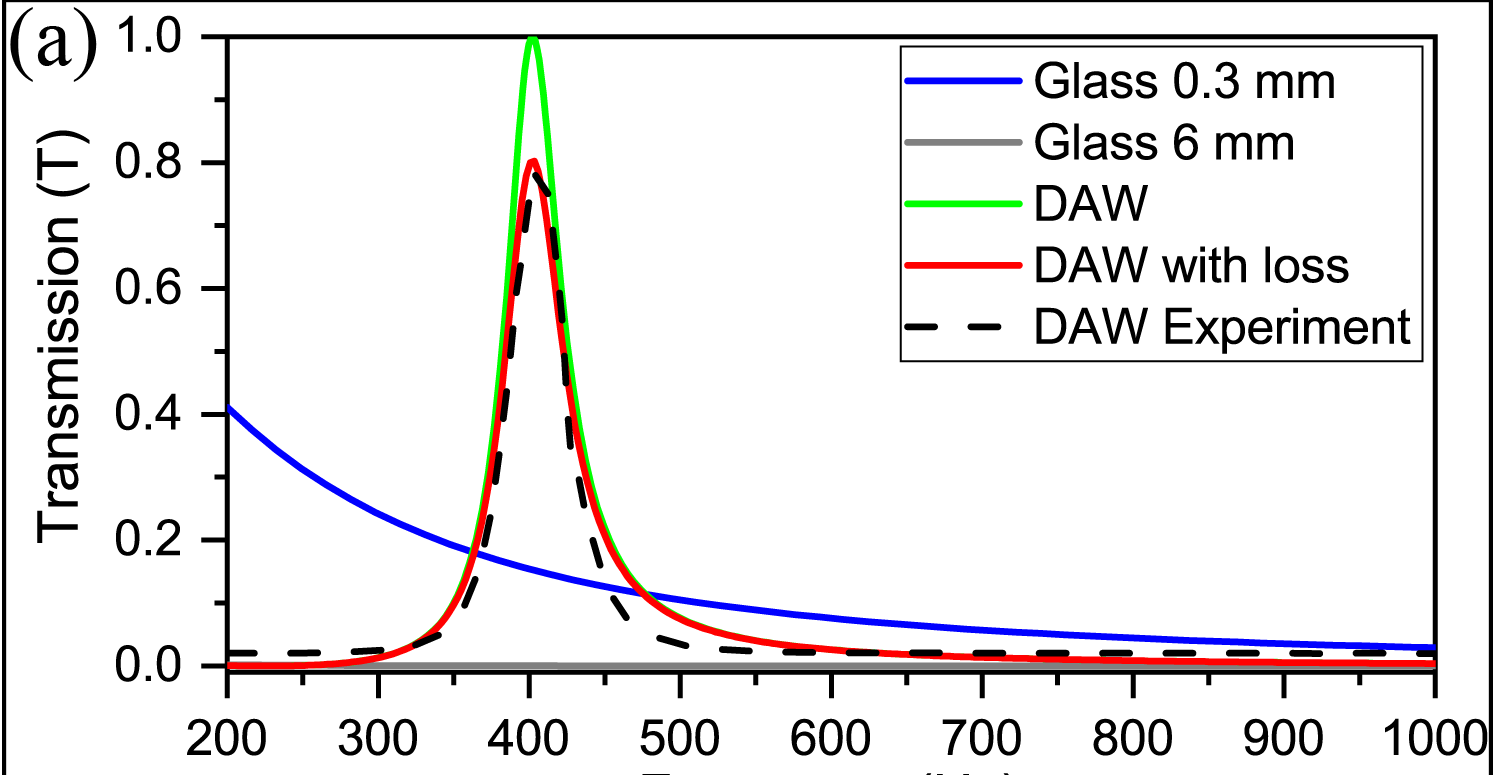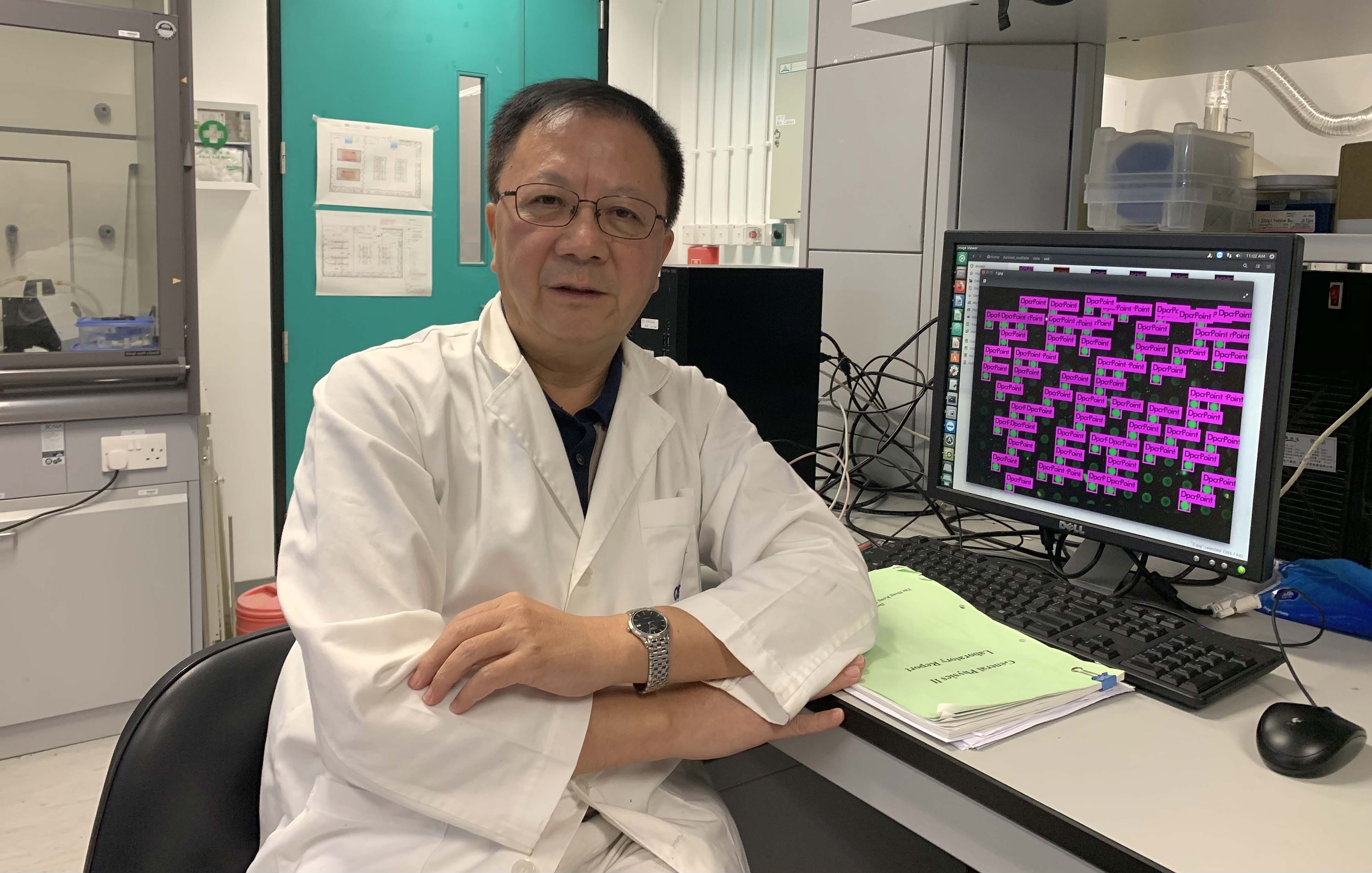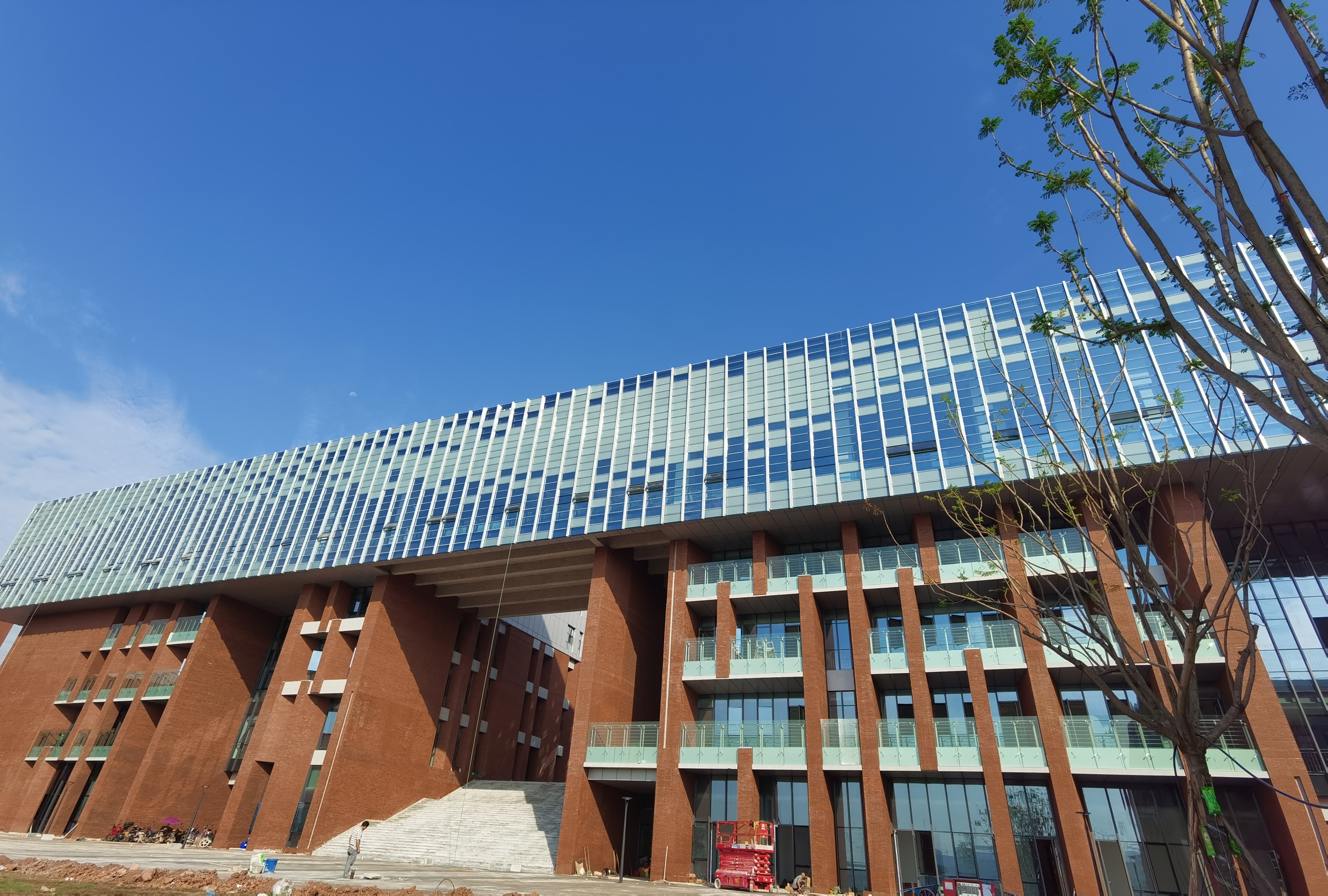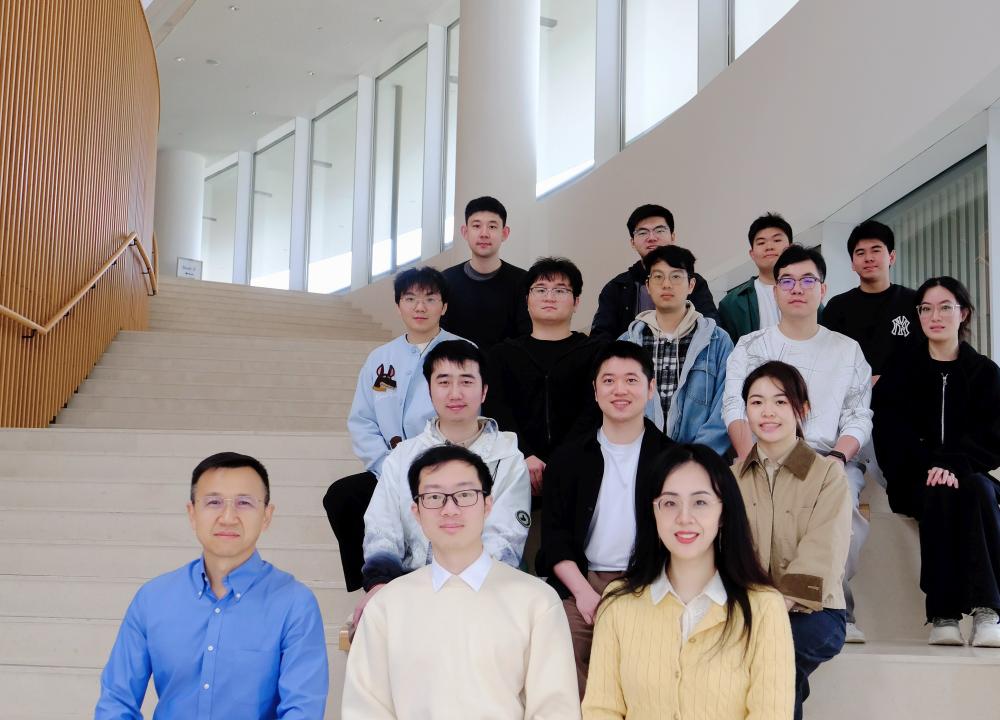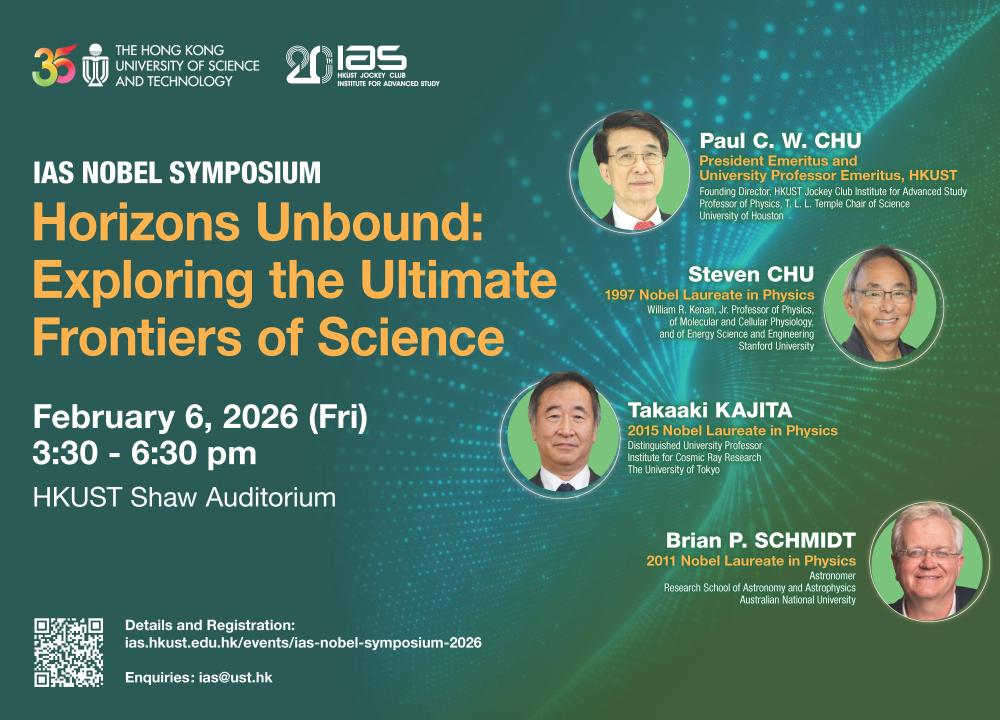HKUST Researchers Developed the World's First Sound-transmitting Glass Material
Glass is a sound-proof material, but researchers at the Hong Kong University of Science and Technology (HKUST) have discovered a way which allows sound transmission for glass, opening a new horizon for the potential development of smart phones and other electronic devices that can function under water, while also offering greater flexibility to building design.
Using the theory of local resonance, a research team led by Prof. WEN Weijia from the Department of Physics has found that by crafting a structured pattern of openings in between glass panes, the sound waves’ mode of vibration will be altered, allowing sound to pass through.
The concept is similar to playing flute, where players can change the tone by adjusting the position of holes on the instrument. The glass with inlaid cavities can also transmit different sound frequency through the adjustment of those cavities’ shape and size.
The finding, made in collaboration with researchers from Chongqing University and Shenzhen Fantwave Tech. Co, was recently published in top physics journal Applied Physics Letters.
"The discovery overturns the concept regarding the use of glass in acoustics and provides a theoretical basis for new applications,” said Prof. Wen. “If holes or openings in glasses are no longer required for sound transmission, manufacturers can design more long-lasting water-proof mobiles or electronic devices. Interior settings which require both transparency and sound transmission - such as those of the bank teller counters or prison reception cells, may also find our technology useful."
As a renowned scientist in advanced functional materials, Prof. Wen’s discoveries span across microsphere and nanoparticle design and fabrications, soft matter physics, smart materials, metamaterials, electronic materials and microfluidics, many of which were eventually transferred into commercial products.
A thermal sensitive nano gel which he discovered in 2009 for example, has recently been applied in the production of a smart glass which transparency changes automatically according to the ambient temperature and solar radiation intensity. This automatic atomizing glass can block up to 70 per cent of the sunlight, effectively reducing indoor temperature by 5 to 8 degrees and minimizing energy consumption by air conditioning.
Sunlight-blocking glass has been a product made of well-known technology, but for installation on a building they all require power in changing opacity. The material developed by Prof Wen was the first one that allows glass to serve such purpose without needing an external power. The smart glass is now deployed in at least 8 mainland cities and provinces including Beijing, Shanghai, Chongqing and Guangdong on facilities ranging from schools and hospitals to residences and exhibition halls.
Find out more on other works of Prof. Wen’s: Homepage for Weijia Wen and his group
About The Hong Kong University of Science and Technology
The Hong Kong University of Science and Technology (HKUST) (www.ust.hk) is a world-class research intensive university that focuses on science, technology and business as well as humanities and social science. HKUST offers an international campus, and a holistic and interdisciplinary pedagogy to nurture well-rounded graduates with global vision, a strong entrepreneurial spirit and innovative thinking. HKUST attained the highest proportion of internationally excellent research work in the Research Assessment Exercise 2014 of Hong Kong’s University Grants Committee, and is ranked as the world’s best young university in Times Higher Education’s Young University Rankings 2020. Its graduates were ranked 10th worldwide and top in Greater China in Global University Employability Survey 2019.
For media enquiries, please contact:
Anita Lam
Tel: 2358 6313
Email: anitalam@ust.hk
Sam Li
Tel: 2358 6317
Email: liyongning@ust.hk









